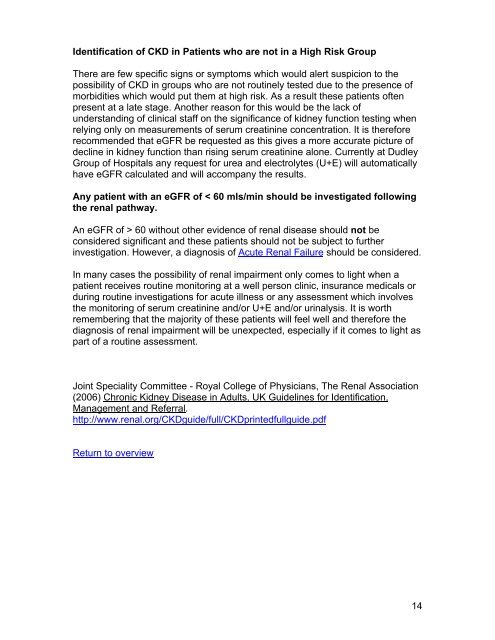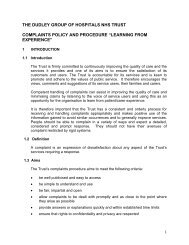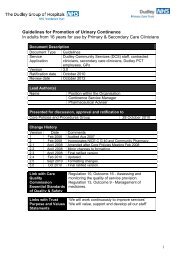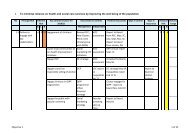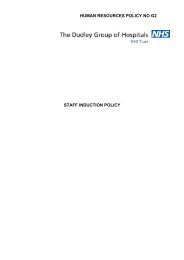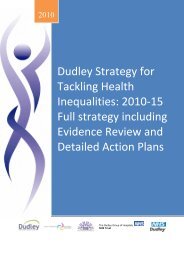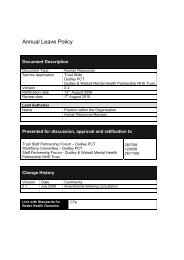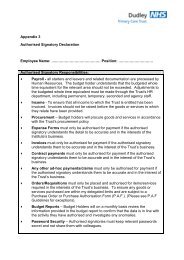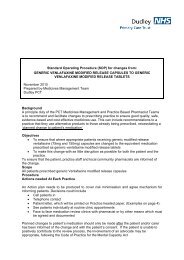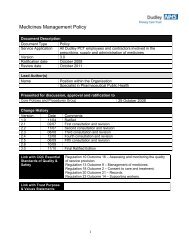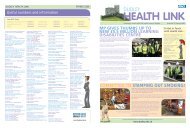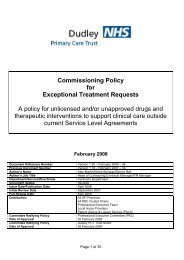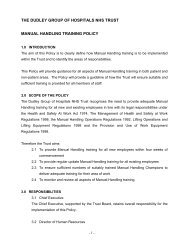Chronic Kidney Disease Pathway Document Description Presented ...
Chronic Kidney Disease Pathway Document Description Presented ...
Chronic Kidney Disease Pathway Document Description Presented ...
You also want an ePaper? Increase the reach of your titles
YUMPU automatically turns print PDFs into web optimized ePapers that Google loves.
Identification of CKD in Patients who are not in a High Risk Group<br />
There are few specific signs or symptoms which would alert suspicion to the<br />
possibility of CKD in groups who are not routinely tested due to the presence of<br />
morbidities which would put them at high risk. As a result these patients often<br />
present at a late stage. Another reason for this would be the lack of<br />
understanding of clinical staff on the significance of kidney function testing when<br />
relying only on measurements of serum creatinine concentration. It is therefore<br />
recommended that eGFR be requested as this gives a more accurate picture of<br />
decline in kidney function than rising serum creatinine alone. Currently at Dudley<br />
Group of Hospitals any request for urea and electrolytes (U+E) will automatically<br />
have eGFR calculated and will accompany the results.<br />
Any patient with an eGFR of < 60 mls/min should be investigated following<br />
the renal pathway.<br />
An eGFR of > 60 without other evidence of renal disease should not be<br />
considered significant and these patients should not be subject to further<br />
investigation. However, a diagnosis of Acute Renal Failure should be considered.<br />
In many cases the possibility of renal impairment only comes to light when a<br />
patient receives routine monitoring at a well person clinic, insurance medicals or<br />
during routine investigations for acute illness or any assessment which involves<br />
the monitoring of serum creatinine and/or U+E and/or urinalysis. It is worth<br />
remembering that the majority of these patients will feel well and therefore the<br />
diagnosis of renal impairment will be unexpected, especially if it comes to light as<br />
part of a routine assessment.<br />
Joint Speciality Committee - Royal College of Physicians, The Renal Association<br />
(2006) <strong>Chronic</strong> <strong>Kidney</strong> <strong>Disease</strong> in Adults, UK Guidelines for Identification,<br />
Management and Referral.<br />
http://www.renal.org/CKDguide/full/CKDprintedfullguide.pdf<br />
Return to overview<br />
14


